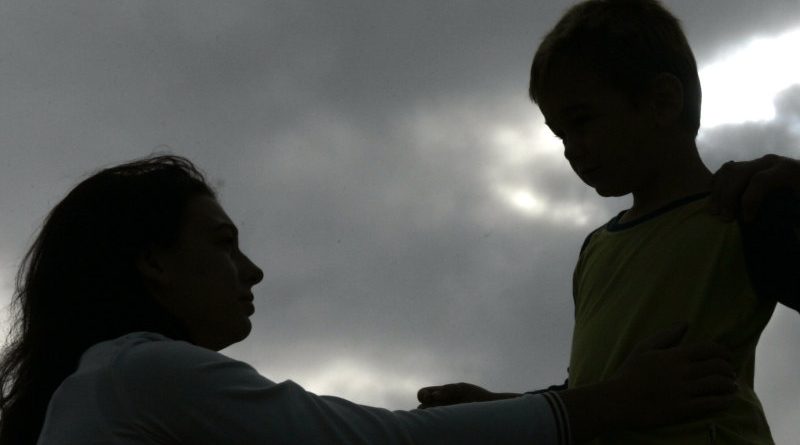Judge overturns Children’s Court decision to allow alleged abuser to continue living with family
Save articles for later
Add articles to your saved list and come back to them any time.
The Victorian Supreme Court has ordered a mother and her two children to live at an address kept secret from her husband to protect them from alleged ongoing family violence.
The decision, by judge Timothy Ginnane, overturned a previous Children’s Court decision to grant an order allowing the father to reside with his family. Ginnane agreed with child protection authorities that the original order had failed to adequately prioritise the children’s best interests.
Supreme Court Justice Timothy Ginnane said the interests of the children must be paramount.Credit: Angela Wylie
The Children’s Court in May heard evidence of “high levels of family violence, including coercive control, psychological abuse, physical and sexual harm” within the couple’s family home, including an assessment the mother was at risk of being killed by her husband.
Child protection workers sought a protection application and put the children in emergency care on May 4.
The following day, however, the Children’s Court of Victoria placed a condition on an accommodation order that allowed the father to live with his wife and children, and released the children into their parents’ care (the mother and children later moved into safe housing).
Describing the case as unusual, Ginnane said the risk posed by the father to his family must override the man’s desire to live with them.
“The order will disrupt their lives,” he acknowledged. “But the court’s obligation is to have regard to the best interests of the children … The fact that the mother does not consent to the [Supreme Court] order and opposes it is significant, and makes the [order] unusual.”
The best interests of the children must also override the mother’s opposition to the proceedings, Ginnane said. The Supreme Court also heard evidence the mother’s reluctance to be involved in court proceedings could have been driven in part by her cultural background, and her unwillingness to risk jeopardising her spousal visa.
Child Protection’s intervention into the family’s living arrangements followed increasingly concerning reports about the father’s behaviour, including a report received on April 19.
“The report included that the father was regularly sexually violent towards the mother and was verbally and psychologically abusive to her, threatening to kill and harm her,” Ginnane observed in a judgment given on June 2.
“He monitored her whereabouts through her mobile phone, which was registered in his name. The children had not been directly threatened by the father but had been exposed to this intimidating and violent behaviour.”
The Melbourne couple, who cannot be named, arrived in Australia two years ago. The woman lives on a spousal visa and made repeated reports to child protection authorities about her husband’s behaviour.
Ginnane cautioned he had not received the father’s “account of events” but said the father’s lawyers had argued the “best interests of the children” should be considered in conjunction with “other best interest principles”, including the needs to strengthen and preserve families.
However, lawyers for the Department of Families, Fairness and Housing argued the Children’s Court did not adequately consider the significant impacts of family violence on children. They argued the mother’s instructions “were likely to be heavily influenced by the father’s presence and her fears of intimidation, coercion, physical and verbal violence, and controlling behaviours”.
They also submitted the Children’s Court did not adequately consider the role of cultural factors facing the mother, making it less likely she would report what was happening in the home; her insecure visa status; and her concerns leaving her husband could threaten her visa status.
A representative of the Children’s Court of Victoria did not respond to a request for comment.
Professor Daryl Higgins, director of the Institute of Child Protection Studies at Australian Catholic University, said that while he could not comment on a specific case, the cumulative harm on children imposed by coercive control, threats and witnessing violence were well known.
“Coercive control, in and of itself, is something that’s a dynamic between two people,” he said. “But what is experienced by the child is incredibly harmful.”
Higgins was one of 10 chief investigators in a landmark Australian Child Maltreatment Study, published in April in the Medical Journal of Australia.
That study revealed 39.6 per cent of Australians reported having witnessed or experienced family violence as children.
The Morning Edition newsletter is our guide to the day’s most important and interesting stories, analysis and insights. Sign up here.
Most Viewed in National
From our partners
Source: Read Full Article




